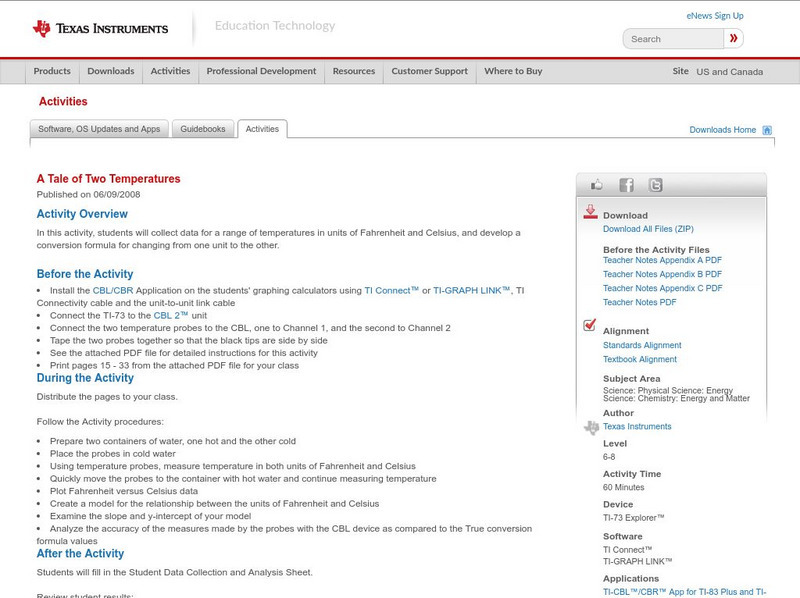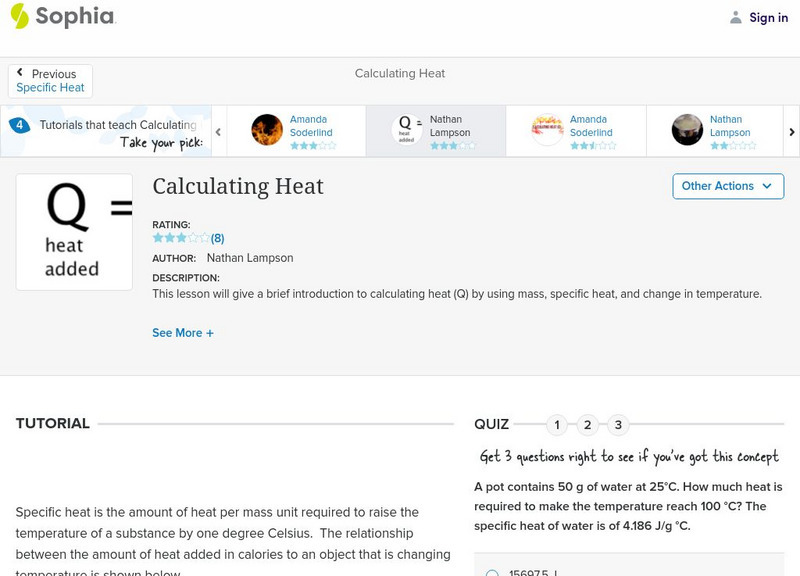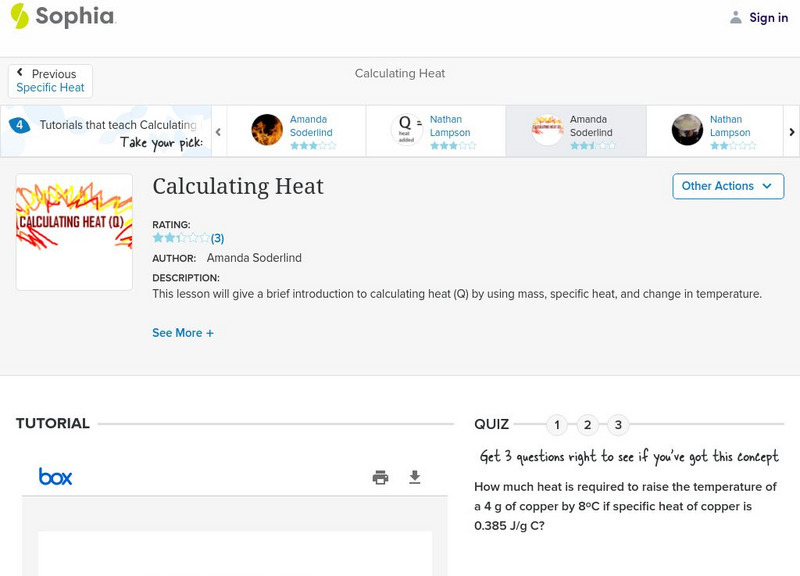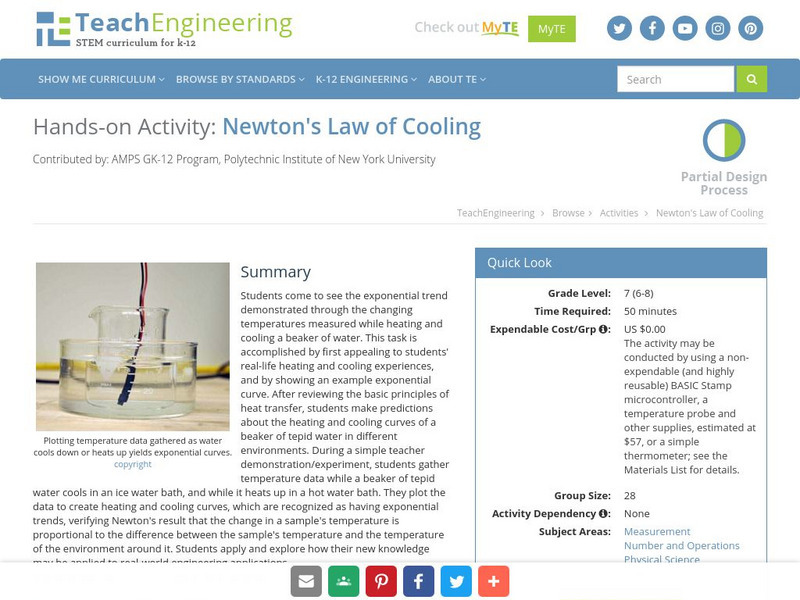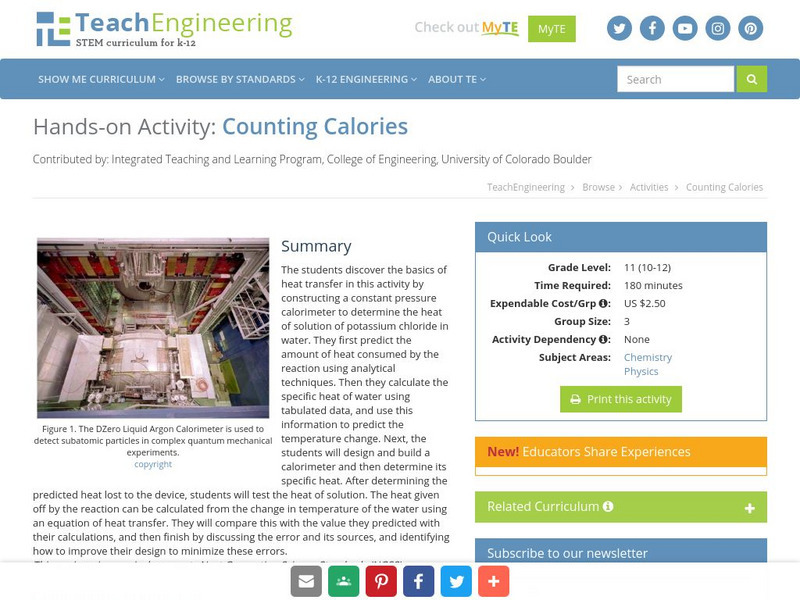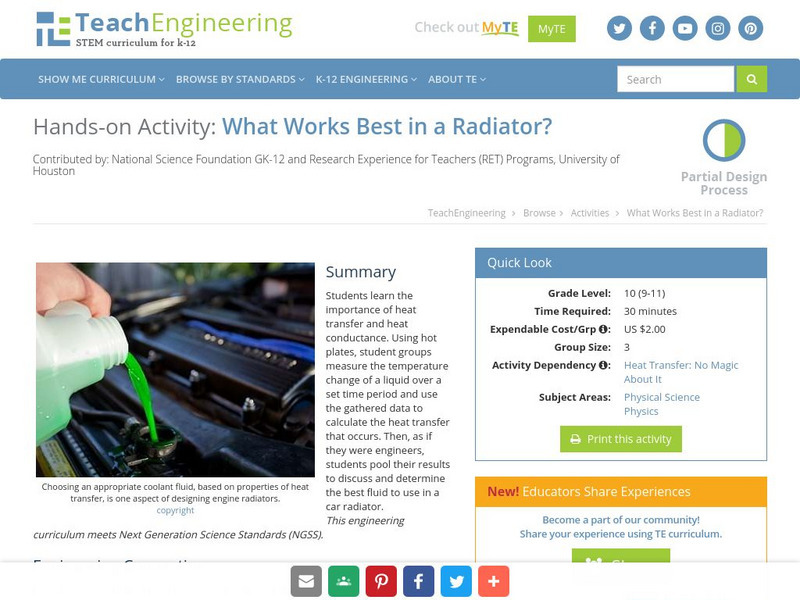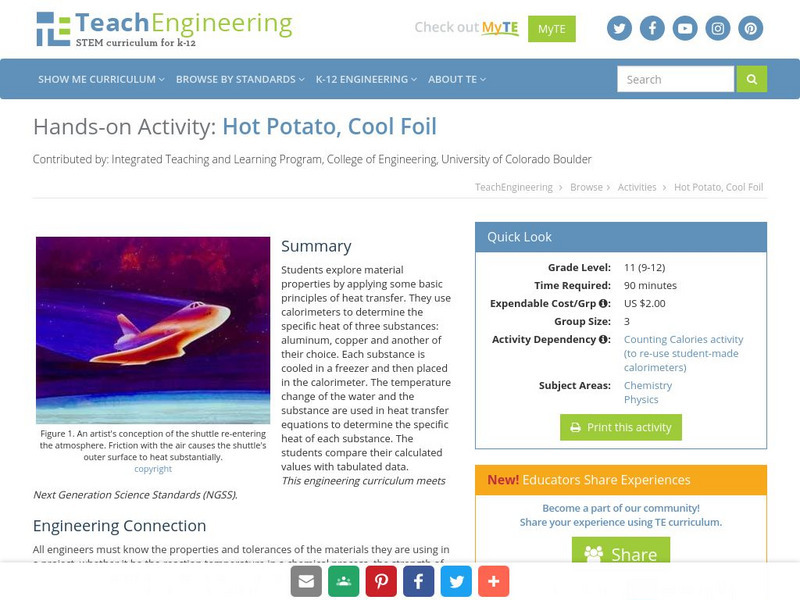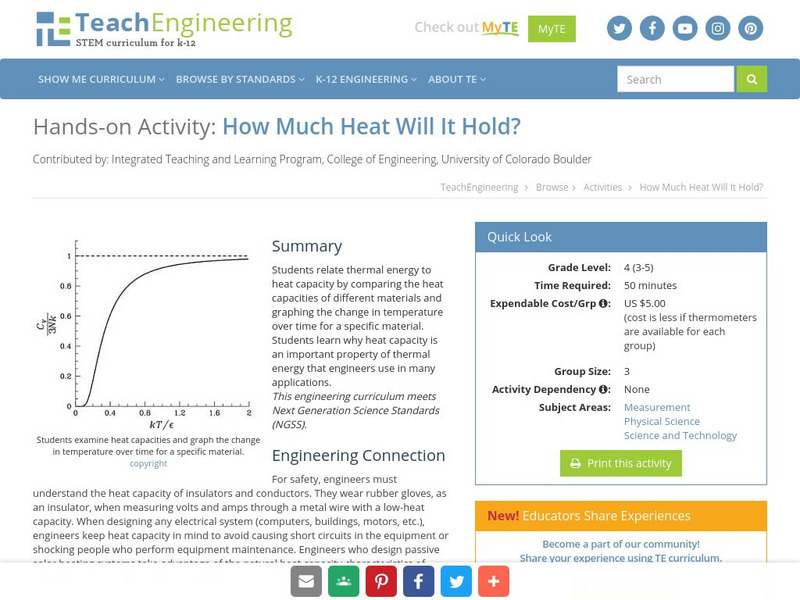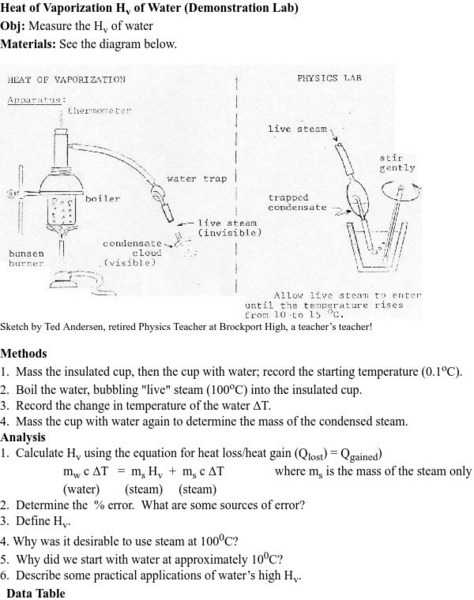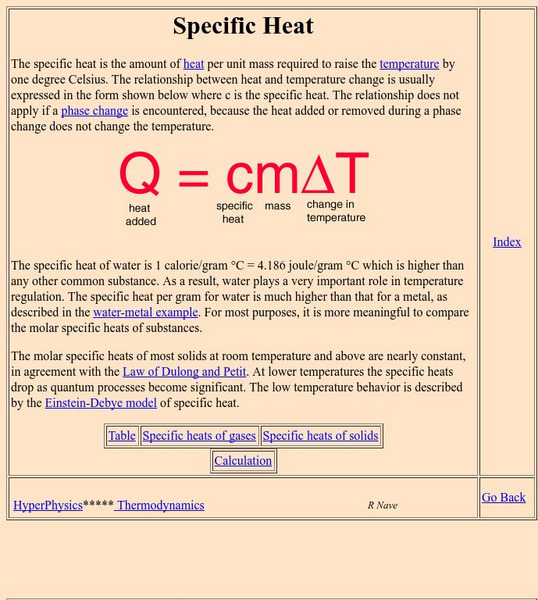Hi, what do you want to do?
Science Education Resource Center at Carleton College
Serc: Investigating Temperature: Using a Thermometer
In this activity, students will record the high/low temperature daily throughout the school year and observe the change over time (phenology). They will analyze the data monthly and make predictions about the temperature.
Texas Instruments
Texas Instruments: A Tale of Two Temperatures
In this activity, students will collect data for a range of temperatures in units of Fahrenheit and Celsius, and develop a conversion formula for changing from one unit to the other.
Sophia Learning
Sophia: Calculating Heat: Lesson 2
This lesson will give a brief introduction to calculating heat (Q) by using mass, specific heat, and change in temperature. It is 2 of 4 in the series titled "Calculating Heat."
Sophia Learning
Sophia: Calculating Heat: Lesson 3
This lesson will give a brief introduction to calculating heat (Q) by using mass, specific heat, and change in temperature. It is 3 of 4 in the series titled "Calculating Heat."
Chem Tutor
Chemtutor: Heating Curve Problems
Nice set of problems dealing with the concept of a heating curve. Students can click on the question and get immediate feedback on their answer.
Other
Homewood City Schools: Classification of Matter
This Homewood City Schools site has an outline form and contains lots of information about the classification and composition of matter. Some of the topics covered are matter and temperature, changes in state, composition of matter, and...
TeachEngineering
Teach Engineering: Newton's Law of Cooling
Students come to see the exponential trend demonstrated through the changing temperatures measured while heating and cooling a beaker of water. This task is accomplished by first appealing to students' real-life heating and cooling...
TeachEngineering
Teach Engineering: Counting Calories
The students discover the basics of heat transfer in this activity by constructing a constant pressure calorimeter to determine the heat of solution of potassium chloride in water. They first predict the amount of heat consumed by the...
TeachEngineering
Teach Engineering: What Works Best in a Radiator?
Students learn the importance of heat transfer and heat conductance. Using hot plates, student groups measure the temperature change of a liquid over a set time period and use the gathered data to calculate the heat transfer that occurs....
TeachEngineering
Teach Engineering: Hot Potato, Cool Foil
Students explore material properties by applying some basic principles of heat transfer. They use calorimeters to determine the specific heat of three substances: aluminum, copper and another of their choice. Each substance is cooled in...
Physics Central
Physics Central: Physics in Your Glass: Racing Molecules
An easy experiment for demonstrating and exploring molecule movement requiring common household items: two glasses, two dark colors of food coloring, and warm and cold water. A few variations to the experiment will have students using...
University Corporation for Atmospheric Research
Ucar: Sea Ice and Heat: A Vicious Cycle
Melting sea ice doesn't cause sea level to rise because the ice is already in the ocean, but it does cause other changes to the planet. When sea ice melts, more sunlight is absorbed by the Earth, which causes more warming. It's a vicious...
Wisc-Online
Wisc Online: Chemistry: Heat Transfer
Answer the thermal energy transfer questions correctly, and advance around the baseball diamond.
Texas Instruments
Texas Instruments: Designing Hot and Cold Packs
in this activity, students calculate the molar enthalpy of dissolving for three ionic solids, and use this information to design a cold pack. In this experiment they measure the heat changes which occur from various salts dissolving in...
Georgia State University
Georgia State University: Hyper Physics: Heat of Fusion
The heat of fusion is defined and described. A graphical representation of the heat of vaporization is given. A method for measuring and calculating the heat of fusion is also presented and explained.
TeachEngineering
Teach Engineering: How Much Heat Will It Hold?
Students relate thermal energy to heat capacity by comparing the heat capacities of different materials and graphing the change in temperature over time for a specific material. Students learn why heat capacity is an important property...
ClassFlow
Class Flow: Heat
[Free Registration/Login Required] This flipchart investigates how heat is produced and the effects of heating and cooling and demonstrates how a change in temperature indicates a change in heat. Students will sequence objects according...
NASA
Jet Propulsion Laboratory: Global Climate Change: Sea Level Viewer
This viewer allows you to see ocean heat storage from space. These images indicate sea surface heights. Learn more about El Nino and La Nina and how they have profound effects on world climate.
Other
Physics Labs: Heat of Fusion (Hf) of Ice
A complete set of directions, notes and suggestions for a lab involving the determination of the heat of fusion of ice. Suitable for a student project or lab investigation.
Other
Physics Labs/heat of Vaporization (Hv) of Water
A complete set of directions, notes and suggestions for a demonstration involving the determination of the heat of vaporization of water. Suitable for a student project or lab investigation.
Other
Physics Labs/specific Heat (C) of Metal
A complete set of directions, notes, and suggestions for a lab involving the determination of the specific heat values for various metals. Suitable for a student project or lab investigation.
Georgia State University
Georgia State University: Hyper Physics: Specific Heat
This page from Georgia State University provides information on specific heat. Formulas are included. You can also enter in information into the site and have it calculate it for you.
Encyclopedia of Earth
Encyclopedia of Earth: Thermal Pollution
Article cites factors affecting temperature change of Earth's water and explains thermal pollution's impact on our planet's ecology.
Texas Instruments
Texas Instruments: I'm Melting, I'm Melting
In this activity you will use the EasyTemp temperature sensor. Determine the change in thermal energy for a given mass of ice. Determine the heat of fusion of ice and the percent error.






